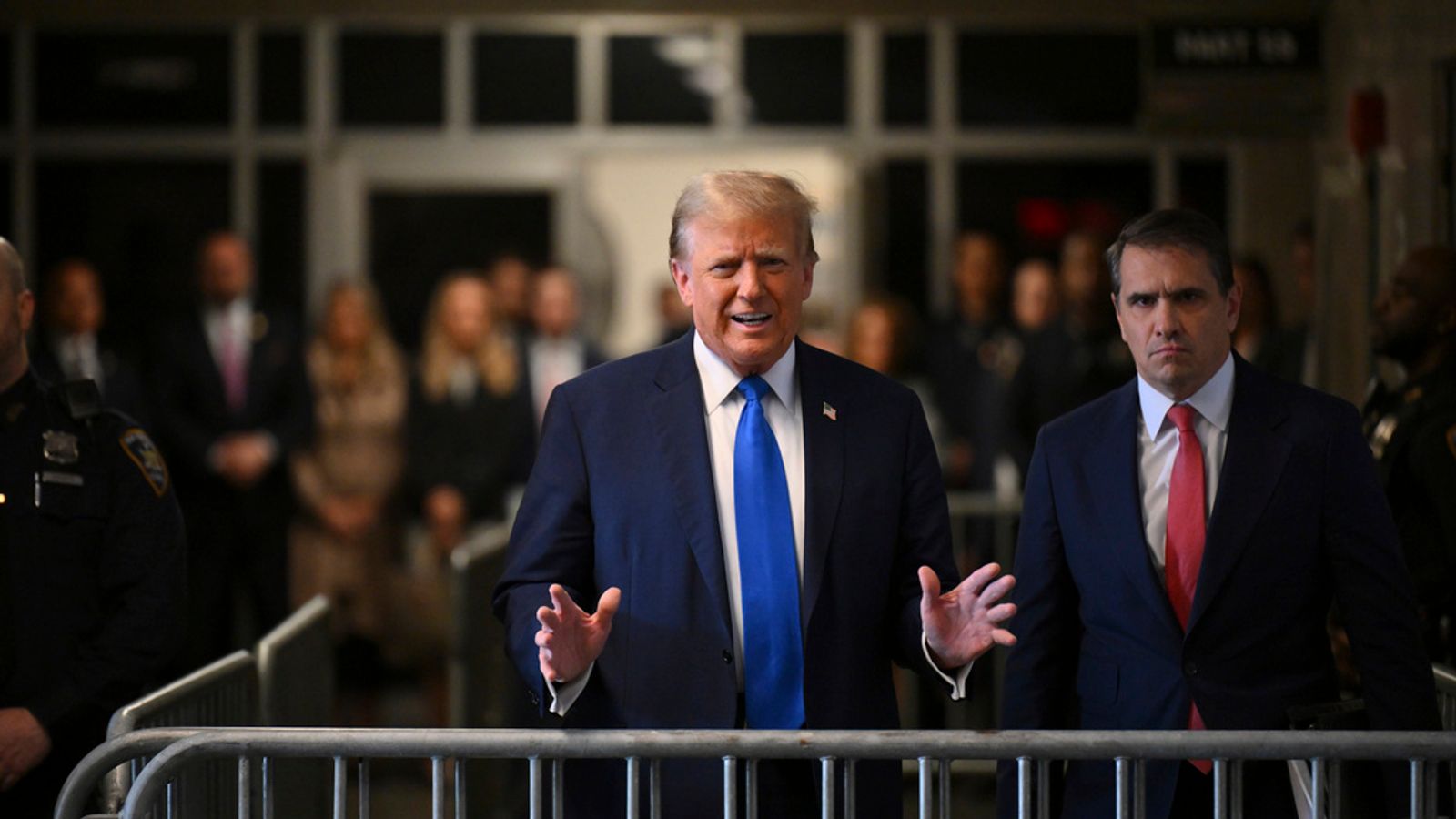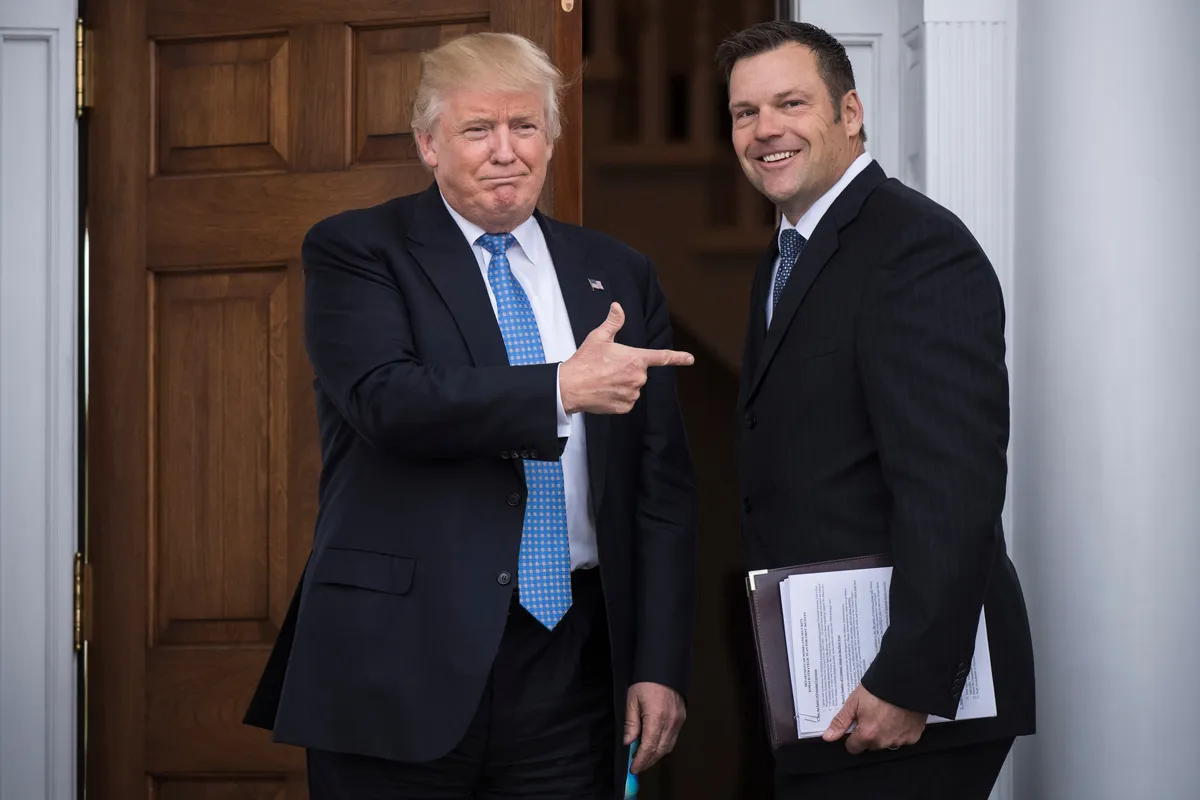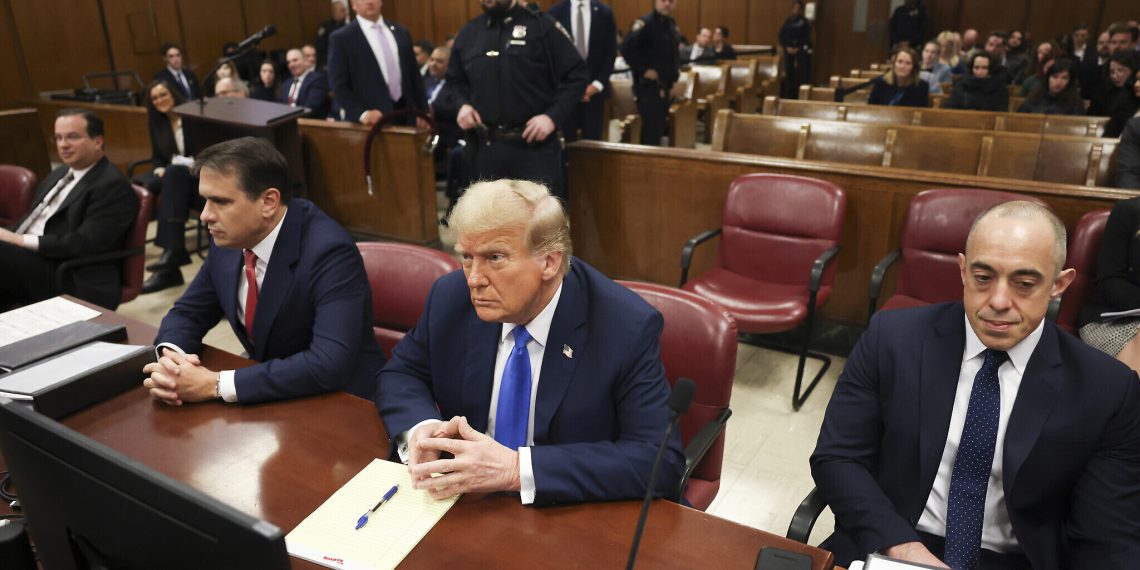On the first day of Donald Trump‘s criminal trial, New York prosecutors accused the former president of law-breaking and electoral corruption.
They allege Trump attempted to conceal affairs with a porn star and a Playboy model, asserting his actions disrupted the 2016 election. Trump’s defense maintained his innocence, denying any criminal wrongdoing.
The trial’s opening witnessed former National Enquirer publisher, David Pecker, testify briefly. Prosecutors claim Pecker collaborated in a “catch and kill” scheme to suppress negative stories about Trump, aiding his election bid.

Trump faces charges of falsifying business records related to a $130,000 payment to Stormy Daniels, a porn star, in 2016. He denies the alleged encounter and pleads not guilty.
Prosecutors portray the payment as part of a broader conspiracy to deceive voters amidst allegations of Trump’s inappropriate behavior. They promise evidence from recorded conversations and documentation to support their claims.
Trump’s defense countered, asserting there was no criminal intent in his actions and criticizing the trial’s initiation by Manhattan District Attorney Alvin Bragg.
Trump’s lawyer argued that influencing elections is a democratic process, rejecting the portrayal of such attempts as criminal.
Observers note the trial’s significance as the first-ever prosecution of a former U.S. president. Despite its historic nature, legal experts view it as the least impactful of Trump’s ongoing legal battles.

While a guilty verdict wouldn’t prevent him from seeking office, it could tarnish his reputation and affect his electoral prospects.
Trump faces three other criminal indictments, all of which he denies, related to his 2020 election challenge and post-presidential actions.
As the trial unfolds, Trump faces courtroom appearances alongside his political ambitions, with potential consequences for his future endeavors.





